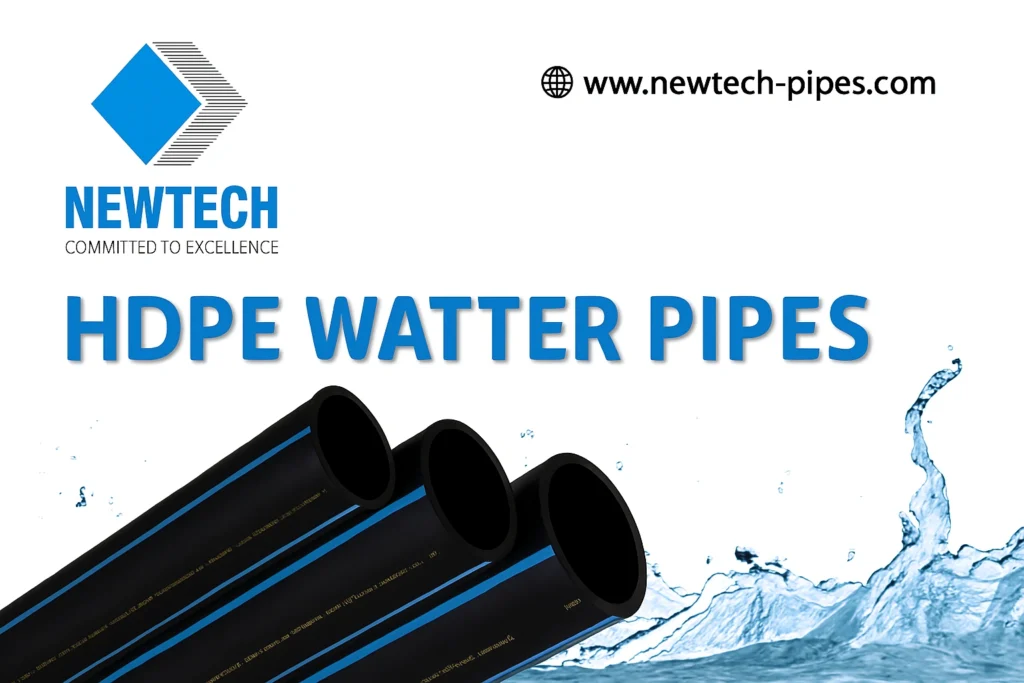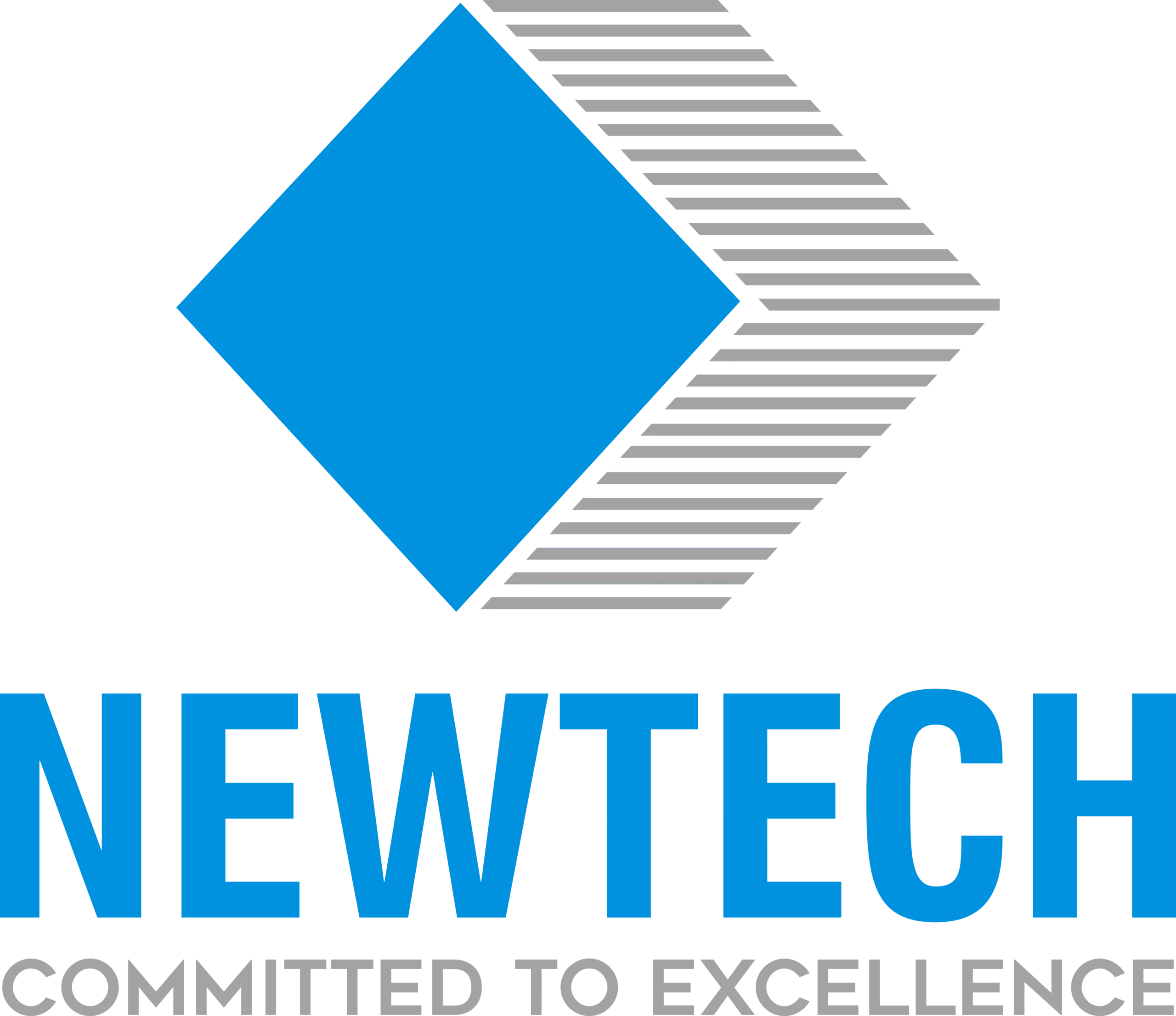If you’re planning a new water supply line—whether it’s for a home, a commercial facility, or an entire community—you’ve probably heard a lot about HDPE potable water pipes. But with so many suppliers in Pakistan claiming to offer “the best quality,” how do you know where to buy? And what should you look for to ensure you’re not just getting the right price, but also long-lasting, safe, and certified pipes?
What exactly are HDPE potable water pipes, and why are they preferred?
HDPE (High-Density Polyethylene) potable water pipes are specifically manufactured for safe drinking water distribution. Unlike some other piping materials, HDPE doesn’t corrode, rust, or leach harmful chemicals into the water. The smooth inner surface reduces friction, which means more efficient water flow and less pump energy.
Their flexibility allows them to handle ground movement—especially important in areas prone to soil settlement or minor seismic activity. When installed with proper fusion techniques, the joints become virtually leak-proof, making them ideal for municipal water mains, rural water schemes, and residential supply lines.
[showdpt instance=”4″]
How do HDPE potable water pipes differ from standard HDPE pipes?
While both are made of high-density polyethylene, potable water pipes must meet stringent health and safety standards. These pipes are manufactured using food-grade PE100 or PE80 resin, ensuring no contamination of drinking water. They often come with blue stripes or solid blue color coding to indicate their suitability for potable water.Non-potable HDPE pipes might be used for irrigation, drainage, or industrial processes, where water safety is less critical. Always confirm the supplier’s certification and ask for a test report verifying compliance with PSQCA or relevant ISO standards for potable water.
Who supplies HDPE potable water pipes in Pakistan?
The Pakistani market includes a mix of local manufacturers, authorized distributors, and international brands with local agents. While I can’t give a fixed “top 10” list (since rankings depend on customer needs, region, and project size), here are the common types of suppliers you’ll encounter:
- Direct Manufacturers – Companies that produce HDPE pipes domestically, often with their own extrusion plants. They can offer competitive prices for bulk orders and faster lead times.
- Authorized Distributors – Middlemen who stock and sell pipes from multiple brands, allowing you to compare in one place.
- Specialized Water Infrastructure Firms – These handle both supply and installation, often bundling pipes, fittings, and fusion services.
- International Brand Agents – Representing global companies that export HDPE pipes to Pakistan with local support for projects.
What should you check before choosing a supplier?
Choosing the wrong supplier can cost you far more in repairs, replacements, and water quality issues than you save upfront. Always check:
- Product Certification: Look for PSQCA and ISO certifications for potable water.
- Material Grade: Ensure PE100 (or PE80 for low-pressure applications) is used.
- Pressure Rating & SDR: Match your system’s pressure requirements (e.g., PN10, PN16).
- Traceability: Pipes should have permanent markings—manufacturer, material grade, SDR, batch number, and manufacturing date.
- Warranty & Support: A good supplier offers not just products, but technical guidance and after-sales service.
- Stock Availability: Confirm they can deliver your required sizes without long delays.
- Fusion Services: Some suppliers also provide butt fusion or electrofusion services to ensure proper jointing.
What role does certification play in potable water safety?
Certification isn’t just paperwork—it’s your assurance that the pipe meets specific safety and performance benchmarks. In Pakistan, PSQCA certification is mandatory for potable water pipes. International certifications like ISO 4427 and NSF/ANSI 61 can further prove global quality compliance.These certifications verify that the pipe is free from harmful substances, can handle stated pressure ratings, and is manufactured under strict quality controls. A certified supplier is far less likely to cut corners.
Do local suppliers match international quality standards?
Yes—many Pakistani manufacturers produce HDPE potable water pipes that meet or exceed global standards, especially those using imported PE100 resin. Some have in-house labs for pressure testing, UV resistance, and impact resistance.The advantage of local suppliers is quicker delivery, lower logistics costs, and the ability to customize production for specific SDR, diameter, or coil lengths. However, always request recent test reports before placing a bulk order.
How do prices vary between suppliers in Pakistan?
Price differences come down to:
- Resin Source: Imported vs locally sourced PE100 resin.
- Production Scale: Larger plants often have lower per-meter costs.
- Standards Compliance: Certified potable water pipes may cost slightly more but ensure safety.
- Brand Reputation: Well-known brands with a proven track record may command a premium.
- Order Size: Bulk orders often secure discounts.
- Location: Delivery costs from Karachi to Gilgit will obviously differ.
What accessories should you expect from a reliable supplier?
A good potable water pipe supplier doesn’t just sell the pipe—they provide:
- Fittings: Bends, tees, reducers, end caps.
- Valves: Compatible with HDPE mains.
- Jointing Equipment: Butt fusion machines, electrofusion fittings.
- Technical Guidance: For proper trenching, installation, and testing.
Should you buy from a single supplier or mix sources?
For consistency, it’s best to source all pipes and fittings from one supplier. Mixing brands and production batches can lead to dimensional mismatches and jointing issues. A single supplier also simplifies warranty claims and after-sales service.
How can you verify a supplier’s claims before buying?
Visit their factory or warehouse to inspect the products.
- Ask for recent customer references and project photos.
- Conduct a sample hydrostatic pressure test before committing to a large order.
- Check online reviews and ratings from industry forums or trade associations.
How does supplier location affect delivery and cost?
Suppliers in major cities like Karachi, Lahore, and Islamabad/Rawalpindi usually have faster stock turnover and better logistics. If you’re in a remote area, factor in freight charges, handling at delivery, and potential delays.
When should you finalize your order with a supplier?
After comparing at least three detailed quotes.
Once you have verified certifications, stock availability, and delivery timelines.
If the supplier offers a written warranty and after-sales support commitment.
Wrap-up
Choosing the right HDPE potable water pipe supplier in Pakistan isn’t just about finding the lowest price—it’s about ensuring your water is safe, your pipeline is reliable, and your investment lasts for decades. Look for suppliers with proven certification, transparent documentation, and strong after-sales support. A little homework now can save you years of trouble later.
Frequently Asked Questions (FAQs)
1) Are HDPE potable water pipes safe for drinking water?
Yes, when sourced from certified suppliers, these pipes are designed to safely transport drinking water without contamination.
2) Can I use the same supplier for both pipes and installation?
Yes, and it’s often better. A supplier who also installs ensures compatibility between pipe and fittings, plus accountability for leaks.
3) How long do HDPE potable water pipes last?
When properly installed, they can last 50 years or more, depending on operating pressure and environmental conditions.
4) What sizes are commonly available from suppliers in Pakistan?
Typical sizes range from 20 mm OD for small domestic lines to over 500 mm OD for municipal mains.
5) Do all HDPE pipes in Pakistan meet potable water standards?
No—only those specifically manufactured and certified for potable water use. Always verify certification before purchase.


